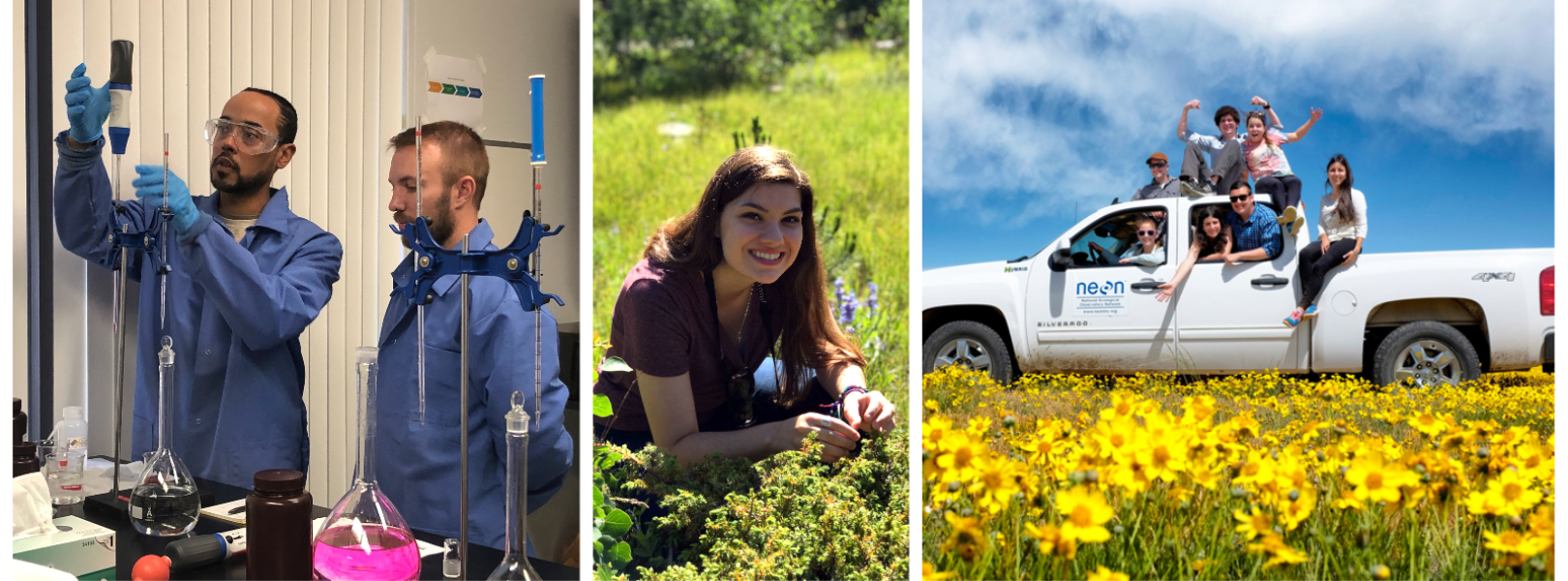Internships

STEM professionals are essential for developing our country's technological and global competitiveness. Although STEM occupations are projected to grow at a rate twice that of non-STEM occupations, the supply of STEM professionals is not expected to meet this projected growth. Mentored internship opportunities are one way for individuals early in their careers to explore a particular field while developing skills and a professional network to succeed in a STEM career. NEON does not provide internships directly to students but does partner with other organizations to host their interns.
For other opportunities to work on the NEON program, please consider the seasonal fieldwork opportunities or work-experience/co-op internships occasionally posted on the Careers page.
Data & Technology Internships
The NEON program partners with colleges, universities, and other organizations to provide on-site and remote internship opportunities for students to work with NEON technologies and data. NEON only supports partnered internships where students are paid a salary or stipend during their internship. Organizations that are interested in partnering with NEON on internships should start the process by submitting a Letter of Support request.
Interns work closely with NEON mentors on real-world projects, and in the process begin the transition from student to professional colleagues. Interns have opportunities to explore career options through a variety of avenues including brownbag seminars and informational interviews with NEON staff.
The intern program coordinator will work with the sponsoring organization to identify appropriate internship projects and mentors for the educational background of the students involved. Internships are typically 8+ weeks during the summer months although other formats can be developed.
Interns in remote research internships typically work closely with a research mentor at their local institution on a research project they design or that their research mentor has designed. In addition, a mentor based at NEON with working knowledge of the data to be used will also be identified. The role of the NEON mentor is to facilitate the research and ensure that the intern understands how to properly work with the NEON data.
Field Internships
The NEON program also provides internships through external organizations to provide students and recent graduates with important hands-on training in collecting and handling ecological field data. Interns receive training in field collection methods and participate in NEON data collection alongside our field scientists. Interns are introduced to a variety of data collection methods from invertebrate trapping to plant phenology observations. These field experiences allow early career ecologists an opportunity to explore their interests in various aspects of field ecology.
The Former NEON Undergraduate Research Program
From 2013–2017, the NEON program supported an 11-week undergraduate research and engineering internship program each summer. During the construction of the Observatory, intern projects ranged from helping to design sensor assemblies to testing sampling protocols and analyzing preliminary data. Learn more about the projects completed by these interns on the Intern Alumni page.